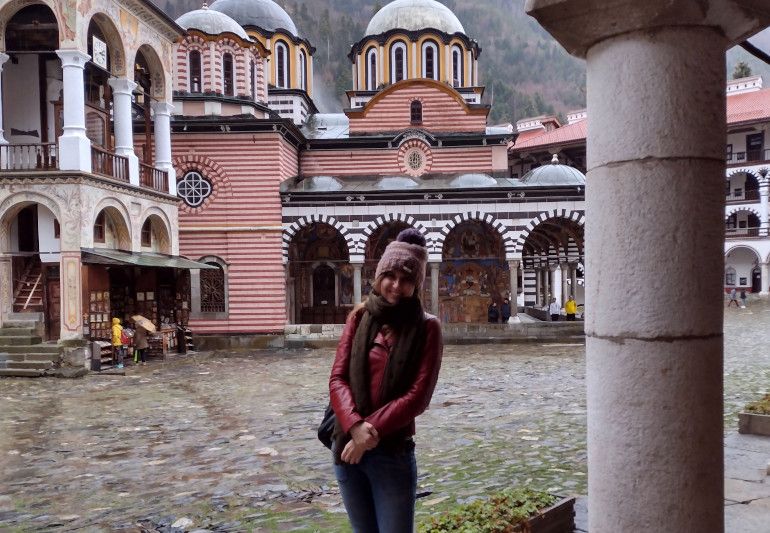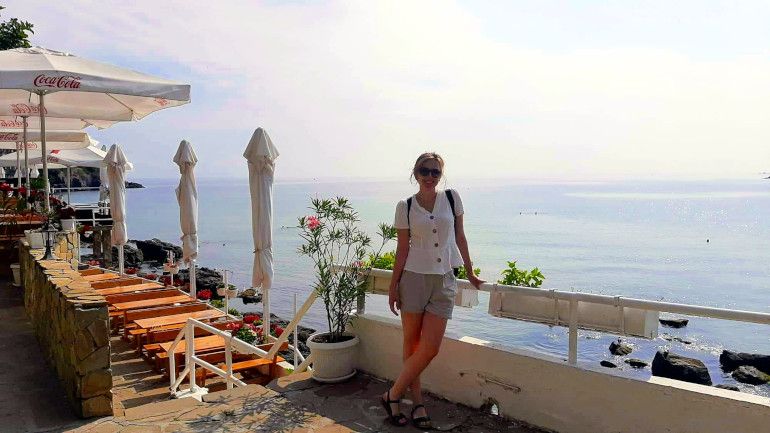Returning for freedom and a more relaxed lifestyle
Guest Writer and photos by Liliya T, edited by Scott Green
A few months ago, I wrote my first article for Open Bulgaria. It was about my journey of returning to Bulgaria after living abroad for 24 years in South Africa and the USA. If you read the article, you’d know that I recently returned to Bulgaria and spent 5 months in Plovdiv before moving to Sofia, where I still live today.
Overall, I think living in Bulgaria is interesting. Spending my whole life living abroad in the West and traveling to different places, I make observations and examine how Bulgarians compare with the rest of the world. I note similarities as Bulgaria is still progressing on its path towards a westernized style of democracy, but I also pay attention to differences.
Pros & cons
Some things that I enjoy in Bulgaria, especially in Sofia, are the food, nature, cultural attractions, events, easy access to travel across Europe, and the active social life (which I never had in America). It’s impossible to be bored here, and I like that Bulgaria is a close-knit community and that it’s relatively easy to make friends and spend time with your family. I also appreciate that for the past year, I’ve been in the process of rediscovering my roots, which has led to a period of personal growth for me.
However, no country is perfect, and there are a lot of things that need work, especially when it comes to Bulgaria’s political corruption, laws, inflation, failing infrastructure, declining population, and understaffed government and businesses. It’s disheartening that most of these are issues that Bulgaria has been dealing with since its economic collapse in the 1990s after the fall of communism. This has pushed many Bulgarians to migrate to western countries for survival and better opportunities, so Bulgaria has never really had a chance to fix them.
Modern Bulgarians abroad & at home
Even when Bulgaria started slowly improving in the 2000s, many Bulgarians, including my family and I, continued to stay abroad. I have come across Bulgarians in South Africa and the USA who didn’t lose their Bulgarian identity, and other Bulgarians, mostly children, and young adults, who have completely discarded their Bulgarian heritage, communicate only in English and have become Americanized.
They don’t speak, read, or write a single word in Bulgarian, or do it very poorly. They don’t care about their culture or traditions, and I wonder, is that the correct way for modern Bulgarians to evolve? Because I was raised to know how to speak, read, and write in Bulgarian, I learned our traditions and kept up with what was going on in Bulgarian news, even when I was one of those children who didn’t want to be associated with a Bulgarian identity for a long time.
Many traditional Bulgarians don’t like that modern Bulgarians are leaving behind their cultural identities, and in my opinion, I can’t compare my upbringing with others, as everyone is on their own unique journey to self-discovery.

Now that I live in Sofia, I’ve noticed massive changes since my childhood days of visiting family in the summer. In my eyes, Bulgaria’s gradually becoming a westernized nation while being still firmly rooted in its past and traditions. There are more foreigners and Bulgarians who have lived or traveled in the West settling in Sofia, and they share similar perspectives and concerns, that they don’t want to live in the USA or Western Europe anymore, mostly due to the “fake” culture, rising costs of living, and not having a work-life balance. These are also the same reasons that I migrated back home, plus, to be closer to friends and family.
Because of this growing community of foreigners and Bulgarians returning home, I don’t feel so alienated from my country as I did when I was younger, at least not in Sofia. In smaller towns with more conservative mindsets, that’s a different story. When we get through the upcoming elections, the Covid-19 pandemic, and the Russian gas crisis in the winter, I think all Bulgarians can agree that our country will look a lot different by next year.
My takeaway
Personally, I think more Bulgarians abroad will return home over the coming years, and that more foreigners will also migrate here mostly due to the affordable cost of living.
Despite Bulgaria’s issues, Sofia is very progressive and up to par with Western European cities, as far as healthcare, education, housing, public transportation, and job opportunities. Smaller cities are slowly catching up as well. Sofia has a bustling nightlife, so there are plenty of things to do with your family, friends, or significant other.
As more foreigners and Bulgarians abroad are realizing that the hustle of the western world isn’t all the hype as it used to be and that Bulgaria offers a more relaxed pace of living, they’ll move here to raise a family, build new connections, realize their dreams, or to just take a break. Even with all the conflict going on right now in the world, people will continue to evaluate their values and what home means to them.
